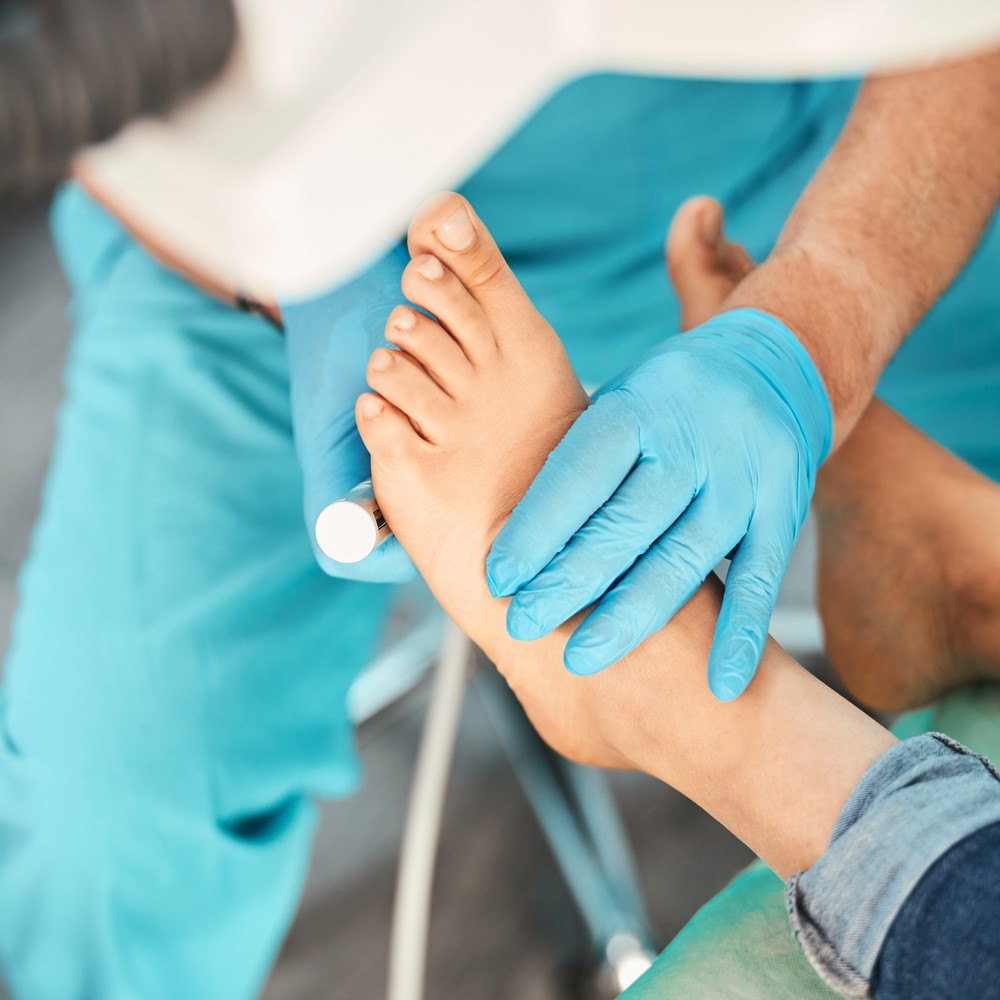Your feet are essential for your mobility and overall health. They carry you around all day long, and they’re also susceptible to a variety of problems, especially if you have diabetes. That’s why regular foot exams are so important.
A foot exam can help detect potential problems early on when they’re easier to treat. It can also help prevent more serious complications, such as amputation.
What to expect during a foot exam
A foot exam typically includes the following:
- Visual inspection of your feet, including the skin, nails, and soles.
- Check your foot pulses to assess blood flow.
- Test your sensation to see how well you can feel things in your feet.
- Check for calluses, corns, and other skin problems.
- Check for ulcers or other wounds.
Who should get regular foot exams?
Everyone should get regular foot exams, but they’re especially important for people with diabetes. Diabetes can damage the nerves and blood vessels in your feet, which can lead to problems such as:
- Numbness or tingling in the feet
- Poor blood flow
- Ulcers or wounds that don’t heal
- Infection
- Gangrene
If you have diabetes, you should get a foot exam at least once a year. You may need more frequent exams if you have a history of foot problems or if you have other risk factors for foot complications. Find out how diabetes affects your feet!
How to take care of your feet at home
In addition to getting regular foot exams, there are things you can do at home to help keep your feet healthy:
- Wash your feet daily with mild soap and water.
- Dry your feet thoroughly, especially between the toes.
- Apply a moisturizer to your feet, especially if they’re dry or cracked.
- Wear shoes and socks that fit well and provide good support.
- Cut your toenails straight across and file them smoothly.
- See a podiatrist right away if you have any concerns about your feet.
Regular foot exams are an important part of preventive foot care. By getting regular exams and taking care of your feet at home, you can help keep your feet healthy and prevent serious complications. More tips about foot care.
Tips for diabetics
Here are some additional tips for people with diabetes who are at risk for foot problems:
- Check your feet daily for any changes, such as redness, swelling, cuts, or sores.
- Don’t walk barefoot.
- Wear shoes that fit well and provide good arch support.
- Avoid tight-fitting clothing or jewelry around your feet.
- Don’t smoke.
- Control your blood sugar levels.
By following these tips, you can help keep your feet healthy and reduce your risk of foot problems.



